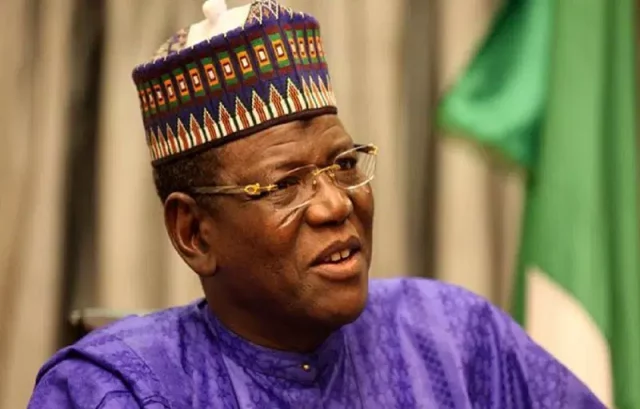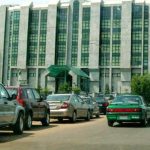Sule Lamido, the former governor of Jigawa State and national secretary of the now-defunct Social Democratic Party, disclosed that he asked General Ibrahim Babangida (retd), the former head of state, to resign during the June 12 crisis following the annulment of the 1993 presidential election that MKO Abiola had won.
Lamido recounted Babangida’s remark in a passage from his autobiography, Being True to Myself, which was released on May 13. He said that no Nigerian would dare to beg him to retire in front of him.
Lamido disclosed in chapter 7, “June 12 Consumes IBB,” that one early morning, “I was at the Nicon Noga Hilton hotel suite (now Transcorp Hilton).” The C-in-C wants to see you right now, the voice stated, identifying itself as Col. Bamalli. Since I was not familiar with the terminology, I inquired, “Who is C-in-C?” “Mr. President,” he responded.
“But I just woke up, and I haven’t even taken a bath,” I said. Babangida was on the parallel line, but I didn’t know it. Kai Sule, ka zo yanzu (Hey Sule, come over right now) was the voice I heard. Yes, sir, I said.
The former governor of Jigawa State recalls that Babangida’s explanation for calling off the election did not persuade him.
He said during their meeting at the Presidential Villa, Babangida’s claim that Abiola couldn’t take office because the government owed him money came across as mere moralising.
Lamido stated, “As the National Secretary of the SDP, I told him, No, the SDP is done with any discussion with the federal military government concerning the June 12 elections. We shall not participate in any new election, as far as we are concerned. It must be June 12 or nothing else.
“I was adamant against any form of arrangement for a new political transition that he was now proposing. However, the actions and utterances of the self-appointed champions of June 12. The National Democratic Coalition and others compelled the leadership of the SDP to reconsider their position. In my discussion with Babangida, being the first time we met, he found me genuine, with no pretensions and even maybe naïve.Then he asked me, Sule, what do I do? In my naïve and innocent attitude, I answered him simply, Sir, you must resign and leave office. Immediately, I stated that his expression transformed. I saw fire in his eyes; for some minutes, he was mute.
“Sule, no Nigerian can dare say that to me, and I know Nigerians very well,” Babangida remarked, giving me a direct look. I didn’t think you were so bold. You’re really fortunate. You seem like a godly person to me. I am aware that everything you have been saying and doing has been sincere and unintentional. Your own understanding of matters is reflected in everything you say and do, whether it is right or wrong. It is unique and a reflection of who you really are, even if it were madness.
According to the former governor of Jigawa State, Babangida acknowledged that his prior perceptions of him were incorrect and said he wished he had met him sooner.
Lamido explained that the intense meeting between the National Republican Convention and SDP negotiators and Babangida’s team led to the creation of Chief Ernest Shonekan’s Interim National Government in 1993.
He stated, “Before Babangida could announce the formation of the Interim National Government, he must have felt that he needed to have a suitable person to head it from the Southwest, someone who could be accepted by the Yoruba, as a kind of consolation and a person that had good connections with the British Government, which had been piling diplomatic pressure on the military government.
“As a former chairman of the United African Company (UAC), one of the oldest British companies in Nigeria and a very strong pillar in the country’s economy, Chief Earnest Shonekan fits the bill.
“Mr. Shonekan was well respected in the corporate world; he has the stature and national acceptance and was not controversial.”The choice of Shonekan, a Yoruba, was to demonstrate that the annulment of the June 12 election was not because Abiola was a Yoruba.” Contrary to rumors, Lamido said that the NRC and SDP were not involved in choosing Shonekan as the head of the Interim National Government. This was despite the fact that none of their prominent politicians had participated in the elections.





